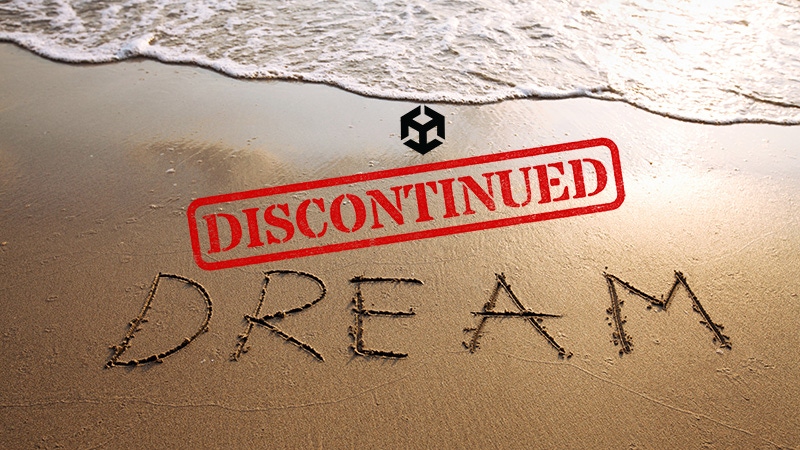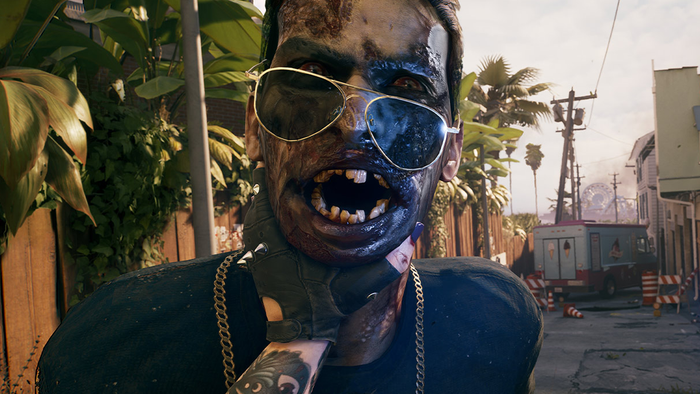
Featured Blog | This community-written post highlights the best of what the game industry has to offer. Read more like it on the Game Developer Blogs.
Is Unity getting into the dream-killing business?
Unity's claim that its per-install policy will only impact top developers isn't as reassuring as it thinks it is.

Since speaking with Unity Create president Marc Whitten about the poorly-received Unity Runtime Fee, I have tried to take him and the company in good faith. However, with the repeated clarifying statements and changes to the Fee that the company has made this week, that's become harder and harder with each passing minute.
An exceptionally strange claim that Unity has repeatedly hammered (including in follow-up statements to Game Developer) has been this: the Unity Runtime Fee will not impact the vast majority of Unity developers, and only the top 10 percent of users should expect to pay significant fees.
Unity leadership surely hoped this argument would comfort the hobbyists and indies who've been public advocates for the engine. It hasn't. Why?
First, there's a clear disconnect between what Unity considers the "top 10 percent" versus the game development world. Unity is quite likely right that high-earning developers won't feel that great a sting from such a fee—but has not considered the earnings of developers doing "just pretty okay."
And second—possibly the point that risks damaging its brand more—Unity's messaging about only "the top 10 percent" of users being impacted sends a negative message to bright-eyed aspiring developers: if you do find success with Unity with your unique indie game, we'll be waiting there to take our fee.
It's a dream-killing, depressing message. Let's dig into it.
Who are the "top 10 percent" of Unity developers?
Industry observers this week have quipped that Unity is clearly trying to get "some of that Genshin Impact money." Genshin Impact, like many other popular free-to-play mobile games, is built on Unity. But even with MiHoYo paying for a Pro or Enterprise license for the studio, Unity doesn't have many tools to capitalize on how much revenue the game is bringing in.
If MiHoYo used Unity's monetization services like LevelPlay (I'm unaware if it does or doesn't), Unity could get a bigger cut of that sweet sweet Genshin pie. If MiHoYo doesn't use the service (or cut any other deal with Unity for another of its monetization products), it could be on the hook for as much as $12,000 per month.
MiHoYo would pay that price because it's likely on the Pro or Enterprise plans. If a developer releases their game on Unity Personal or Plus, the 20 cent-per-install fee that kicks in at a lower install and revenue threshold will feel much more painful. If you've already earned $200,000 in revenue and had 200,000 installs, the next 100,000 installs (installs, not users) could cost you $20,000 a month.

Don't want to pay that fee? Well jumping up to Unity Pro—and paying the higher annual fees that come with it—is right there.
Unity's messaging this week has been focused on the MiHoYos of game development (who may themselves be miffed about the surprise new fees). Their messaging has been that if you've "found success," you're closer to the former group and are the ones who will have to pay the most in fees.
The company probably looks at the top 10% of its users and thinks of the MiHoYos because that remaining 90% is a lot of student, personal, and hobbyist accounts.
But developer reactions this week have indicated otherwise. When the makers of Among Us, Slay the Spire, Phasmophobia, and Darkest Dungeon say this policy will hit them in the bank account, it gives us a better picture of what studios are in that 10 percent.
If those developers can look at the data and start pricing out how much money they'll owe—the developers hoping to hit their level of success can too.
Why try finding success if it will just instantly vanish?
A large number of game developers do not enter the game industry to make exorbitant live service games. They want to make something small and interesting, with mechanics they can wrap their heads around and production cycles that don't swallow their lives. To developers like these, the success of Totally Accurate Battle Simulator matters way more than a big hit like Marvel Snap.
For solo devs or small companies, the mid-sized hits and cult classics might be the upper end of their game development inspirations. It's a starry-eyed dream that says you can make money without having millions of dollars in your coffers. Those dreamers are the ones playing around with Unity, finding solutions for niche problems, and finding joy in the art of game development.
I'm not alone in this observation—Dreamfeel game director Llaura McGee said as much in her thoughts on this mess of a week. "The Unity community is the most valuable "asset" Unity has," she wrote. "All of these 'worthless' users not only share their knowledge and work and assets every day for this ecosystem to benefit from, but they also evangelize the tool constantly to new users. They create the inspiration and encourage new developers to join the industry."
Ask yourself this: If you're a Unity developer who isn't earning enough revenue or gaining enough installs to hit the Runtime Fee threshold, and you see people just on the other side of said threshold raising hell about the money they'll owe—what incentive is there to try and be that successful?
In a bit of irony, it reminds me of a former neighbor who would complain in bad faith about socialist policies—he regularly wondered loudly why if anyone should try and become a millionaire if they would be taxed so highly that they would not earn that much more than the average worker.

At least under a socialist government, said taxes go into a system that's ostensibly building a safety net or providing other public services. Unity wants to make a similar claim with statements that it's using this revenue to "invest in the engine." But developers experiencing stability issues with the current version of LTS aren't likely to believe such statements.
And if you just cynically assume this is all a grasp for profitability—there's even less reason to try and swing for your dreams. Unity has taken bad-faith arguments about socialism and turned them into functional arguments against capitalism. Ironic.
If the 90 percent of developers that Unity says "won't" be affected by the Runtime Fee don't believe they can find success by climbing into the 10 percent, then they are in fact being affected by the Runtime Fee.
Unity's messaging and strategy has taken direct aim at the dream that has propelled new developers into its ecosystem for over a decade: that new users could, with time and imagination, turn game-making into a fun, sustainable job.
Like it or not—if you're in the business of selling shovels to gold miners, you're in the business of dreams. Killing them can really take a bite out of the bottom line.
Read more about:
Featured BlogsAbout the Author(s)
You May Also Like













